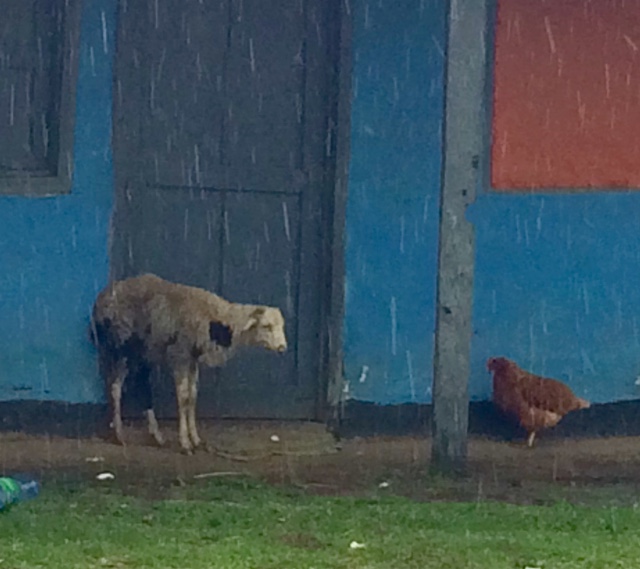I think my admiration and appreciation for the women of Ethiopia is obvious. I really enjoy the time I get to spend with other women - when women are alone together here we can laugh and joke freely - there is a feeling of freedom and it's very relaxed. If it's a mixed gender space it can still be fun and playful but in my experience so far, it feels more censored and contained and the women defer to the men. Gender roles are very clearly defined here. As an outsider I think I can get away with saying things that local women wouldn't be able to say. For example, a joke I made the other evening - I was sitting in the kitchen with the women of the house chatting when my host father came home, came into the kitchen and playfully asked in Oromifa if I was going to make buna (which he likes to ask me nearly everyday). I playfully responded in Oromifa with 'I'm sorry, I don't understand.' Everyone got a kick out of it because they knew I understood but was pretending I didn't to avoid having to make buna. (I only felt comfortable to make a joke because I have lived with my host family for awhile, we are comfortable with each other and my host father likes to laugh with me.) Since then I have heard the story recounted a number of times by my host mother & sisters to other women always resulting in a good laugh. I'm glad it was well received and that I can give them something to laugh about! I'm sure I've been a source of humor for them in more ways than I even know.
The women of the house have taken great care of me and taught me so much. They are like superheroes, they can do it all. The other day it was raining, windy and muddy. The animals go out for grazing during the day, they always go out in the same general direction but it's open grazing so they are not contained in any way. They return home around sundown but this day the mule didn't return. So my host mother has to go out in the dark and the cold, pouring rain to search for the missing mule. She didn't waste any time - she put on her lace-up shoes, her heavy scarf and seemed undeterred and unafraid. This after a full day of preparing every meal from scratch for everyone in the household, washing dishes and clothes by hand, making buna from scratch, attending to anyone who happens to stop by the house during the day (there are always people who drop by), and milking the cow. They told me they were afraid that the mule may have gotten stuck in the mud somewhere but I suspect they were also afraid for their mother to go out in the dark and the rain. No one goes out in the rain unless they have to, the mud is no joke - it's very slippery. But in true superhero form she found the mule, brought him back home like it was no big deal and then continued with business as usual.
My host father is also admirable. He seems to be a savvy business man, he has solid connections in the community and surrounding area, has a charming personality and a very firm handshake. He always dresses sharply even when he's working around the compound. He is usually gone all day doing business around town or traveling to other towns. One day he took me by surprise. For a reason unclear to me someone had brought their herd of sheep into our yard. One of the sheep had an injured leg and had trouble walking. The herd was sent out to graze while the injured sheep was left behind. He was quite distressed to have lost his friends and was very vocal about it. (Side note: I love to hear the animals communicate with each other, they have distinct voices and they know who their posse is.) He tried to find his way out of the compound a few times to reunite with his friends even with his broken leg. He was so sad and pathetic looking, as it was one of his back legs that was hurt so sometimes it would give out and he would just plop down on his butt. I was working in my room when I happened to look out as my host father and two other men who were hired to do work in the yard were attending to the injured sheep - they were all gathered around cleaning and massaging his hurt leg, my host father making sure they were doing it right, while the sheep laid there very calmly and seemed to appreciate their efforts. I think they really helped him feel better because from that point forward he stopped his excessive calling and decided to just relax in the yard rather than escape. Later on in the afternoon a heavy rain came through; as we all ran around gathering the almost dry clothes off the clothes line, I see my host father swiftly pick up the injured sheep by the fur on his back and stand him up next to the house so he could be out of the rain. It was so sweet. The animals here work very hard and some are treated poorly so to see these acts of kindness towards this one little sheep really struck me.










